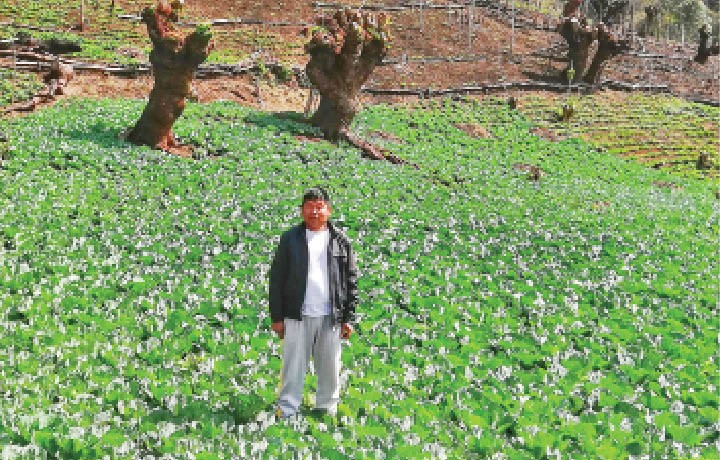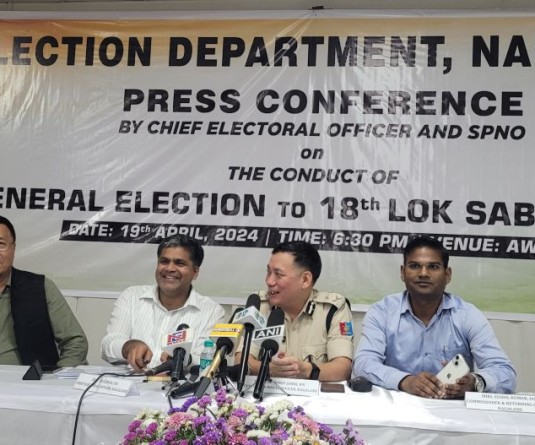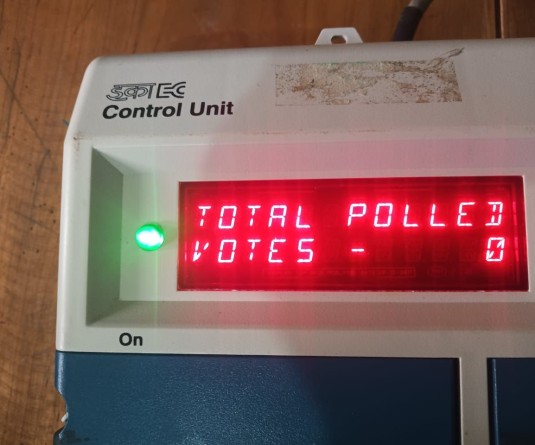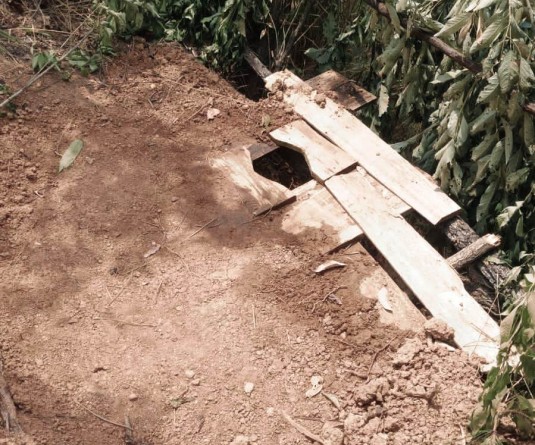A farmer in Tsupfume village, Phek District, shows off his cabbage and potato plantation. Tsupfumi village is one of the largest producers of cabbage in Nagaland. (Morung Photo)

Limasenla Jamir
Phek | April 18
Nagaland government is, over the years, promoting economic self-sufficiency and adopting farming villages and also declaring farmer years. These many initiatives have helped the farmers and are helping them in improving their livelihood.
Many villages in different districts in the state have been adopted as vegetable villages and the farmers have been encouraged and trained to adopt other forms of cultivation apart from Terrace rice cultivation and Jhum cultivation.
Tsupfume village located in Phek district has also been declared as a vegetable village and also a golden village by the state government. The village is known for its large scale production of cabbage and potato along with kiwi and plum fruit. Vegetable farming started in 2006 when the villagers suffered a poor rice production in 2005.
“Vegetable farming started in 2006 as a competition among the farmers. The village was divided into four blocks and the groups were given land for cultivation. We cultivated cabbage, potato and other vegetables. The competition made the farmers realise that other vegetables can also be grown apart from rice,” said Khazü Lea, who is an ardent cultivator and also the president of the Framer’s Union, Phek.
The farmers in Tsupfume village are self-sufficient and almost every household has a vegetable farm. The village was also adopted as a potato seed village by North East Initiative Development Agency (NEIDA) in 2016. “We have also started potato cultivation in the village and we produce more than 5600 kg in a year. We have also given potato seeds to our neighbouring villages like Pfutseromi, Lasumi, Sakraba and Zhavame,” said Churu, a vegetable farmer.
“We are one of the largest cabbage producing villages in Nagaland. Every family earns a minimum of Rs. 60-70,000 per season through cabbage. We are given high quality cabbage and potato seeds by NEIDA and we are also taught on how to cultivate them systematically starting from the germination of seeds to cultivation,” Churu added.
The Village Development Board has constructed Horti-agri link road to help farmers transport cabbage and other vegetables easily and they also have a cold storage constructed by NEIDA in the village. “We know that the economy of our village has increased because the tithe in our church has increased. Farming has helped in improving the living standard of our villagers and we are thankful for the blessings,” said Khazü Lea.
Pressing hardships
The blessings however come with a lot of hardships. The major hardships that the villagers face are access to good roads and unabated taxation. On certain occasions, due to bad roads or road blockades, the produce of the farmers rots halfway and incurs heavy losses to the farmers.
“On our way to Dimapur to sell our cabbage we pay taxes at seven gates to various government agencies, various factions of NNPGs, numerous unions and associations. Sometimes more than half of our income is given away in taxes. Even if we address the problem, nobody seems to be giving any heed to it,” informed Khazü Lea.
He added, “We don’t sell our cabbage in Kohima because of the high tax rate. It is funny how the same cabbage that we sell in Dimapur comes back to Kohima with a higher selling rate.”
The farmers even cited incidents where they were harassed and manhandled when they refused to pay the taxes demanded and said that it is not just the Tsupfume villagers but the villages in all of Phek district that suffer from the problem of unabated taxation.
The case of unabated taxation is prevalent in almost all the districts in Nagaland including Kiphire district where the maize farmers have to pay huge taxes to the various NNPGs. “Thirty percent of our income goes in taxation. With high transportation rate, bad roads and heavy taxes, sometimes it is very discouraging and we don’t even feel like cultivating,” said Renpew, a 62 year old farmer hailing from Phuvkiu village.
The exploitation of farmers through unscrupulous trading system and heavy taxation has been a major problem for local farmers in Nagaland for many years. If at all, the state government knows about these problems, it should look into the grievances of the local farmers. The farmers are encouraged to produce more variety of vegetables, they are given different training on how to be more enterprising but sadly, they are not taught on post harvest handling arrangements and there is no effort from the government in regulating marketing of agricultural produce.





